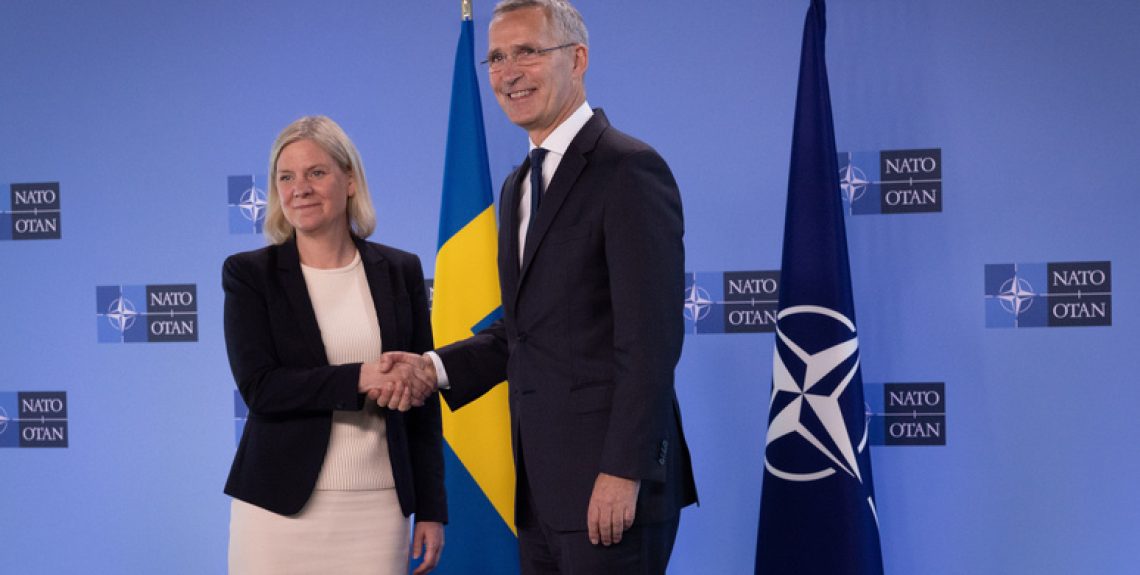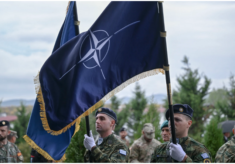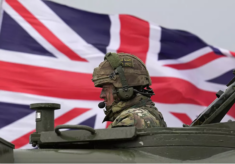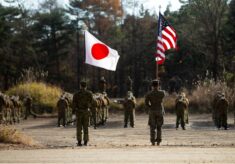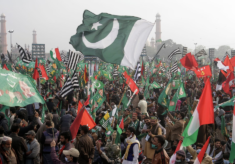When Sweden finally does join NATO – which is likely to happen later this year, it will mean the end of over 200 years of supposed ‘neutrality’. Neutrality has grown to become one of the defining features of modern Sweden’s exceptionalism, together with a strong welfare state, generous asylum/immigration policies, and use of development aid and “feminist principles” in foreign policy. Yet, the last years have seen Sweden’s economy become more neo-liberal while its exceptionalism in foreign affairs has diminished.
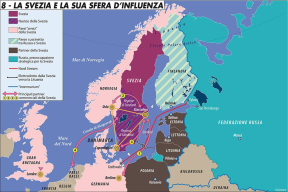
But was Sweden ever really neutral? In 1810, when the Swedish parliament appointed Jean Baptist Bernadotte, one of Napoleon’s foremost generals, to succeed to the Swedish throne, many expected the brash Marshal de la France to reclaim Finland, which had been lost to Russia in 1809, and lead Sweden to new heights of military glory. Instead, after turning against Napoleon in 1812 and forcing Norway into a union in 1814, Bernadotte declared Sweden a neutral country, and focused his considerable energies inwards. Yet, neutrality was never constitutionally codified (as it was in post-WWII Austria). Rather Swedish nonalignment owes as much to circumstance as choice, and has more often than not been more chimera than reality.
Sweden managed to avoid the First World War, along with the rest of Scandinavia. It played a more dubious role during the Second World War, however. The USSR was angered by Sweden’s tacit support of the Finnish resistance during the Winter War of 1939-40. Yet, it was above all its concessions to Germany that drew heavy criticism from the Allied powers and its occupied neighbors, Norway and Denmark. Sweden supplied Germany with massive amounts of iron ore, crucial for the Axis war effort. It also allowed German troops to pass through Swedish territory. While this “German-biased” neutrality was largely supported at home as necessary to avoid outright occupation, it nonetheless left a bitter aftertaste and profoundly contributed to the post-War sense of external moral obligation.
Genuine neutrality was a professed aim during the Cold War. It came to be conceived as beneficial in-and-of itself and was associated with the Social Democratic notion of the Middle Way. The heyday of Swedish international solidarity and non-alignment was under prime-minister Olof Palme in the 1970s, when criticism of both the US and the USSR was common. Throughout the Cold War, behind official narratives of neutrality lay significant secret intelligence sharing with NATO. In the event of a Soviet invasion, Sweden could not stand alone but would receive vast military assistance from the Western bloc.
After the end of the Cold War, Sweden joined the Partnership for Peace (PfP) implemented by NATO. Any semblance of strict neutrality was further eroded with the entry into the European Union in 1995, where Sweden actively pushed for increased military cooperation among member states, including the Nordic and EU battle groups. Furthermore, Sweden’s accession to the EU was domestically marketed as a way for Sweden to bring its unique values into the Union and transform it into something more in line with Swedish concepts of moral foreign policy making. In fitting with this approach, the Swedish government repeatedly criticized the EU for its poor handling of the breakup of Yugoslavia and NATO for its aggressive bombing of Serbia in 1999.
In the post 9/11 world, Sweden has given clear support to NATO missions, participating in both ISAF missions in Afghanistan and Operation Unified Protector in Libya. In fact, Sweden became more active in both campaigns than certain major NATO militaries – most notably Germany. By the Arab Spring, active non-alignment had already been exchanged for military activism, yet the self-image of neutral Sweden persisted alongside notions of Sweden as a “moral superpower” and feminizer of global affairs. Domestically center-right parties have long called for official Swedish membership in NATO, yet public opinion has generally supported continued neutrality. Until the Russian invasion of Ukraine, official Social Democratic policy was that NATO membership was completely off the table. Then, on the 15th of May 2022, the current Social Democratic leadership decided to join NATO, claiming that a Russian invasion of Sweden could not be ruled out, despite general skepticism that this could ever happen in practice.
Missing in the domestic debate around membership are any claims that Sweden will export its humanitarian values to NATO or that Sweden will reform NATO for the better, as it once sought to do with the EU. This transformation represents another facet of both the Global Enduring Disorder and the decline of the hegemony of both Western exceptionalism and the Liberal Social Democratic project. After all, today, notions of Swedish exceptionalism are just as likely to evoke in Swedes our controversial Covid-policy, the explosion of deadly gun violence or the hyper-marketization of our hospitals and schools, as it is to conjure notions of Sweden as moral superpower. Perhaps it is in fitting with the global trend of countries looking increasingly inward.
It signals a new consensus that the nation’s humanitarian energies are best spent at home and a growing acknowledgment that Sweden is, or at least desires to be, just another European country. Seen in its totality, from a geo-strategic point of view, it is a rational – and laudable – step for Sweden to join NATO, but an irrational one to not try to leverage Sweden’s unique heritage and skills to incentivize broader collaboration in areas like climate change, migration, and humanitarian issues where Sweden’s legacy can help the West have a clearer moral mission and more cutting-edge policy tools.
*This article is a condensation of the previously published: Jason Pack and Dr Karl Karim Zakhour, “No More Neutrality: NATO and the Twilight of Swedish Exceptionalism,” The National Interest, August 15, 2022
Jason Pack
is Senior Analyst at the NATO Defense College Foundation and author of Libya and the Global Enduring Disorder.
Karl Karim Zakhour
is University Lecturer in Political Science at Stockholm University and a Project Lead at the NATO and Global Enduring Disorder Project.

